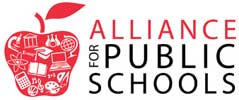Taking place against the backdrop of a contentious presidential election season which included its governor, Florida lawmakers grappled with a myriad of issues that would shape the future of K-12 education. Take a look at some highlights and challenges that emerged during this pivotal session:
1. ESSER Funds and Fiscal Realities
The Elementary and Secondary School Emergency Relief (ESSER) funds, a lifeline during the pandemic, faced a cliffhanger. These federal dollars had bolstered schools, but their expiration loomed large. The budgets for both PreK-12 and higher education institutions were under the microscope. As the clock ticked, districts grappled with the impending funding gap, risking teacher layoffs and program cuts.
2. Deregulation and High Stakes Testing
Last year’s expansion of school choice had a ripple effect. In 2024, lawmakers doubled down on deregulation, aiming to free public schools from policies that districts viewed as cumbersome. While some hailed this as a step toward flexibility, others felt like the legislature did not go far enough. Popular proposals that would have ended the harsh consequences of high stakes testing failed in negotiations between the House and the Senate.
3. Social Media Regulations for Minors
In an era of tweets and TikToks, social media regulations became a hot topic. The legislature grappled with safeguarding minors online. Lawmakers attempted to balance free speech and protecting students. The resulting policy does not target specific platforms and applies to platforms “where at least 10 percent of daily active users are children younger than 16 who use it for two hours or more a day; that uses “addictive” features, such as infinite scrolling; and that uses algorithms that analyze user data to handpick content for users.”
Chronic Abseenteeism and the Future of Education
Despite committee hearings and public statements from legislative leaders, the chronic absenteeism crisis was never addressed. Districts continue to grapple with a high number of student absences.
Pay attention to the candidates on your ballot for school board, the state House, and the Senate. Be ready to vote on August 20th and November 5th. It will be up to advocates and voters to demand policies that empower students, elevate student voices, engage families and the community, and involve students in the solutions.
Sign up for our updates to stay informed of issues impacting our children, educators, and public schools.








